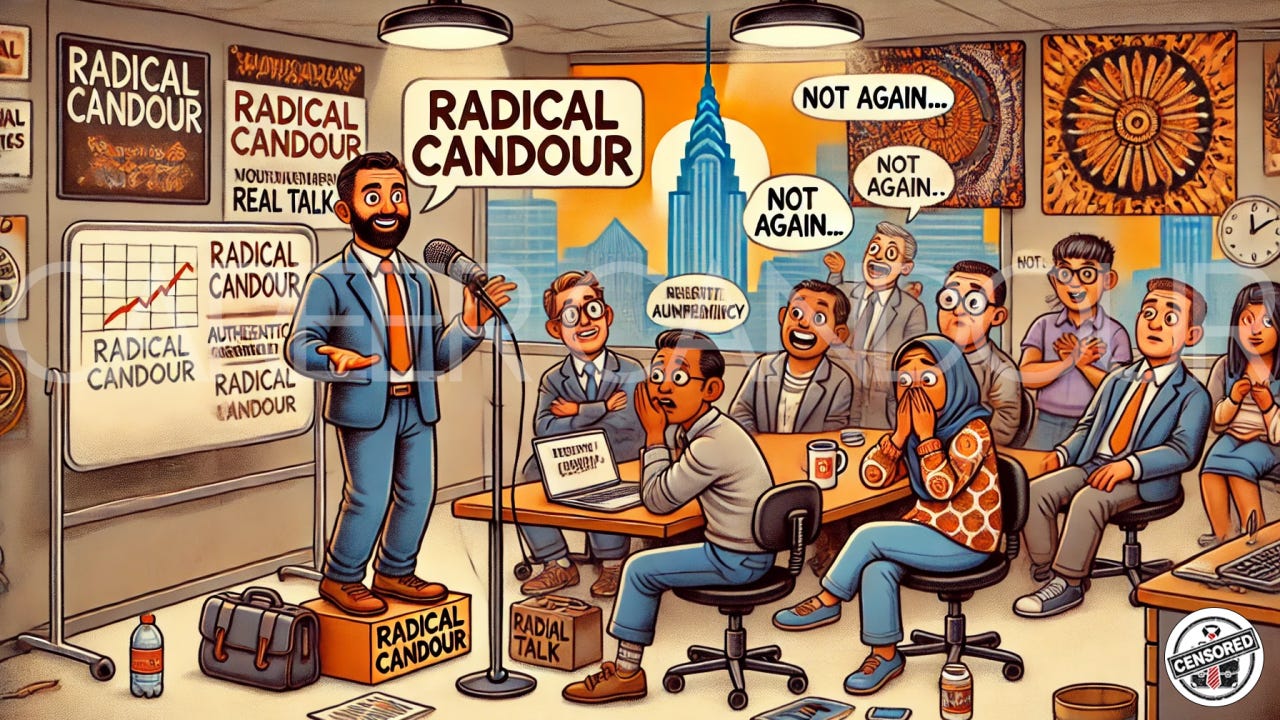Radical Candour: The Management Theory That Sounds Amazing Until You Actually Try It
Feedback is a gift, until it causes cultural breakdown. Explore the messy reality of Radical Candour in Southeast Asia and how to adapt it smartly.
Radical Candour has fast become the preferred leadership Kool-Aid, sipped by founders, HR departments, and anyone who once read half a business book on a flight to Bali. On the surface, it sounds like the perfect solution to corporate dysfunction: speak your truth, but do it with a warm, supportive hand on the recipient’s shoulder. Simple. Neat. Marketa…




